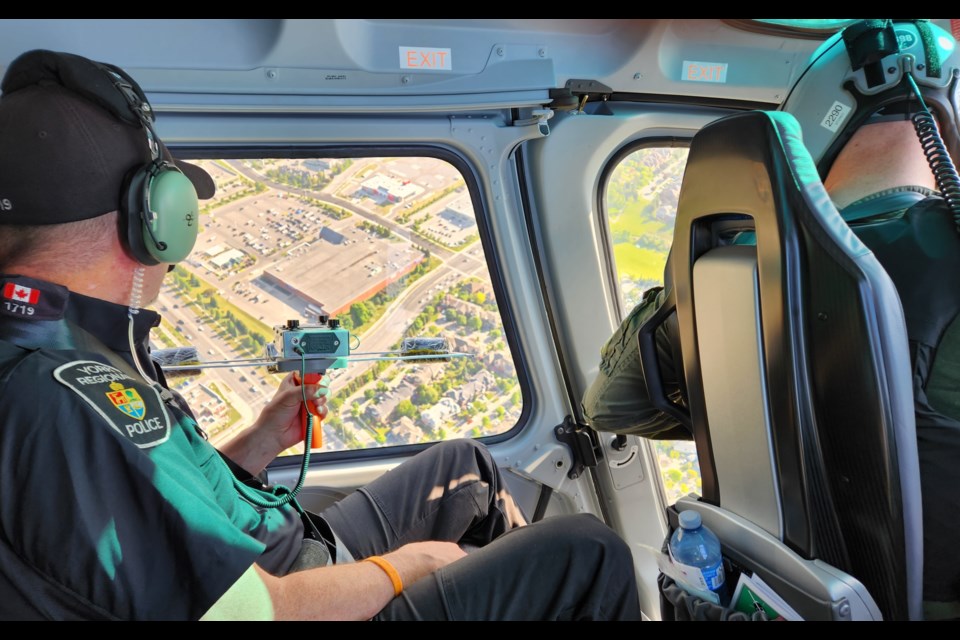York Regional Police recently benefited from having North Bay's Stan French do some training on the BAYSAR Airborne Electronic Search called Project Lifesaver.
Every minute counts when trying to find a missing, vulnerable person and Project Lifesaver helps shorten the time to find people with a cognitive deficit like dementia or Autism.
Project Lifesaver clients wear a small radio transmitter 24 hours a day and if they go missing, their family calls 911 so police equipped with tracking receivers can start a search. The average time to find a Project Lifesaver client is 30 minutes, but when ground searchers can’t pick up a signal right away, being able to search from an aircraft makes the system work even better.
From May 30th to June 1st, Stan French, President of BAYSAR Air Search and Rescue in North Bay, provided specialist training to the York Regional Police. As a result, four officers in York Region are now qualified to teach other YRP officers how to find missing Project Lifesaver clients from their Air Support Unit helicopter to augment their current ground search program.
See: Project Lifesaver extends reach farther north
And: Project Lifesaver proves its value during mock rescue
Discussions between York Regional Police and BAYSAR started last year.
Project Lifesaver agencies of Ontario held a networking meeting during which advances in airborne search techniques were presented by Stan French. French explained how BAYSAR Air Search and Rescue was adapting the existing US-based course for local use in North Bay.
At that time, there were no Canadian instructors available to provide a course in Ontario or eastern Canada. Since BAYSAR has volunteers with private aircraft, BAYSAR wanted to make the best use of the aircraft if they were called out by police to search for a client.
But with no one else teaching this skill, local efforts turned into a regionally available course.
The York Regional Police Air Support Unit includes civilian pilots and tactical flight officers trained in patrol and suspect tactics, airborne surveillance and advanced thermal imaging.
French provided instruction on the ground and in the air to two Tactical Flight Officers and two officers who already instruct Project Lifesaver on the ground,
The compressed course included searching for and locating at least five transmitters during the day and two transmitters at night. To manage the time in the air, each target transmitter needed to be located in less than 15 minutes.
Former North Bay residents also played a part. Mike and Janice Wilson, now living in Holland Landing, happily volunteered to host a transmitter for a night evaluation flight and they recruited three of their friends to host evaluation targets.
“York Regional Police see the Project Lifesaver program as an invaluable tool as we help serve the safety needs of our region’s most vulnerable citizens," said Constable Peter Gerulath. Search and rescue incidents are emergencies that often require a significant amount of resources for an extended period of time. So, while improving the time taken to return a lost person to their loved ones, the Project Lifesaver program can alleviate a huge strain on resources."
If anyone has a family member who you think would benefit from Project Lifesaver in the areas patrolled by the North Bay Police Service, North Bay OPP, or the Nipissing West OPP, a referral can come through the Alzheimer Society, One Kids Place, or email BAYSAR directly at [email protected].
